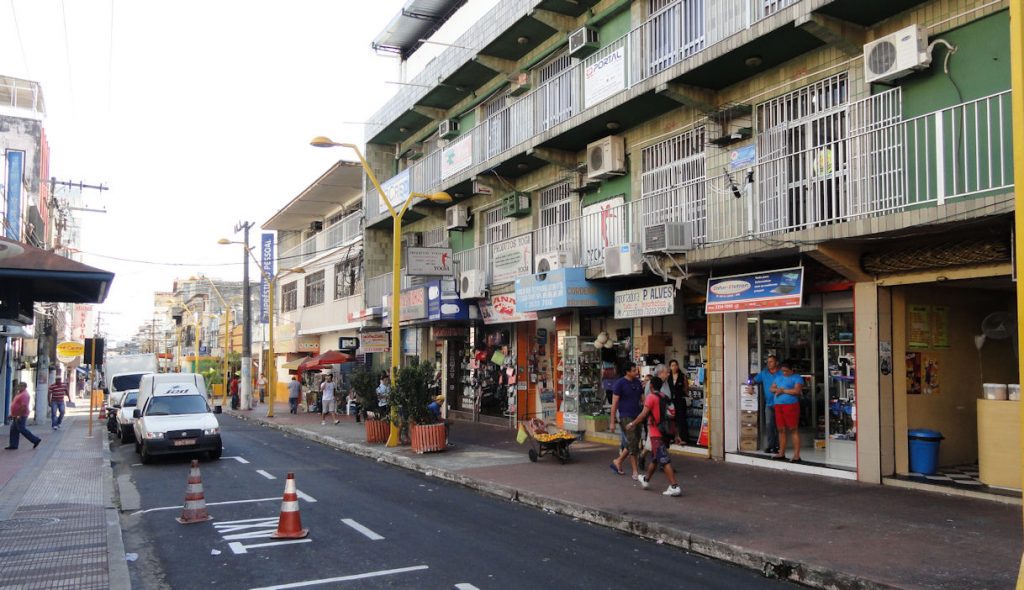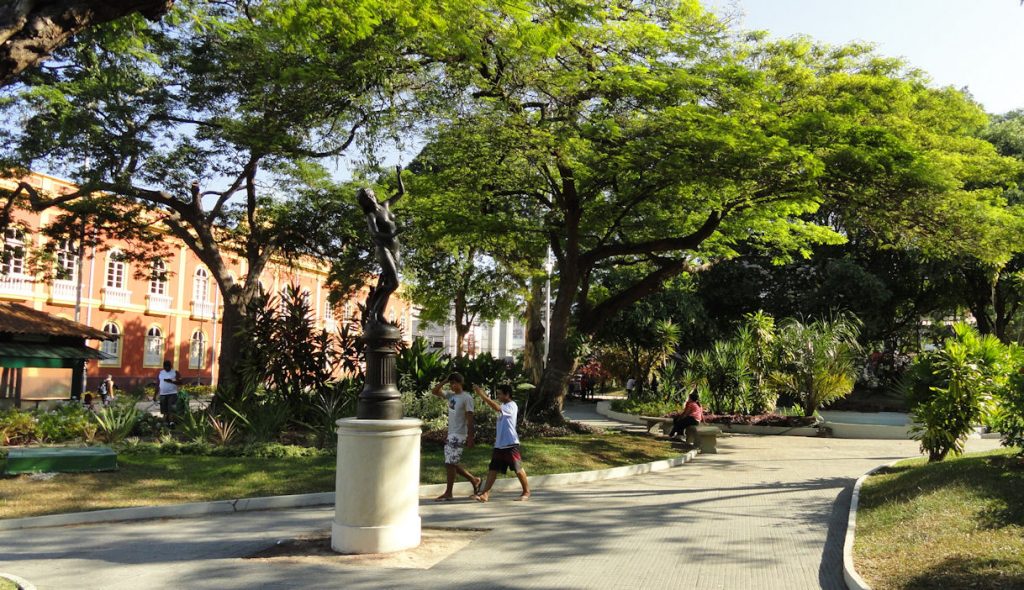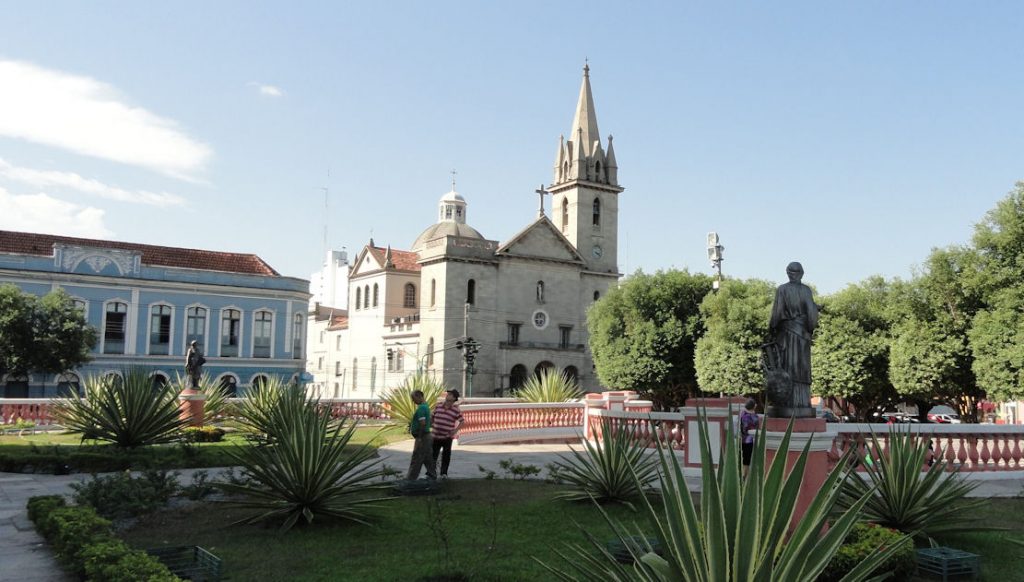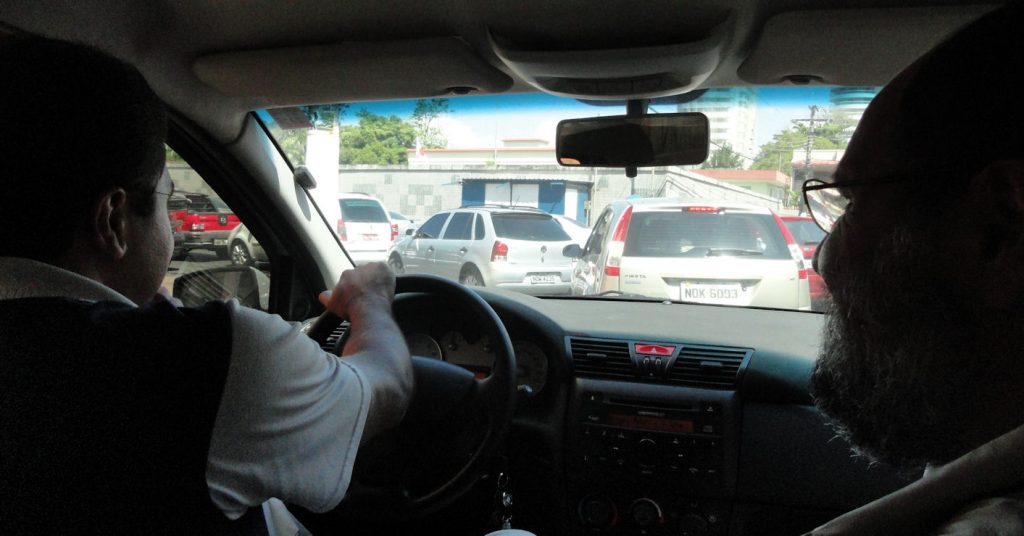
It is hard to get a taxi driver’s opinion about things, unless you ask. They aren’t a statistically valid representative sample of the population, but they know the city better than average and they get to meet lots of different people, so it is worth asking. I rode in eight taxis in Manaus and decided to get something more from the exchange than transportation. I started with similar questions. (1) How long have you lived in Manaus and (2) How do you feel about the changes in the last ten years? That kept the conversation going for the rest of the trip, no matter how long and one trip took an hour.

All but one of the drivers had grown up in Manaus and the one who didn’t had lived there more than forty years. This was a bit surprising, because they all told me that most of the people in Manaus are newcomers. Maybe taxis drivers are uniquely recruited from native populations. But besides the guy who had immigrated to Manaus, nobody had ever gone anywhere else, not even other parts of Brazil. They explained that Manaus was like an island. It was not connected to the rest of Brazil by any road that you could use. To get to Manaus you had to fly or take the boat up the river. A couple grumbled that this was a kind of conspiracy by the elites in the rest of the country, who wanted to prevent competition from the new frontier regions. One guy told me that there used to be a road that went west across Amazonas and connected with Rondonia and from there to Brazil in general, but the road had fallen into disrepair and was now been reclaimed by the jungle. They blamed foreign NGOs and environmentalists for preventing repairs and improvements.

Manaus has grown fantastically in the last ten years. Although it is far from everywhere else, it has a port on the Amazon that can handle ocean going trips. Once you get a container on the boat, shipping costs to any other seaport of the world become much less important. It can cost less to ship bulky cargo thousands of miles around the world than it does to ship a hundred miles on some of Brazil’s roads. Manaus has a free trade zone, which has attracted all sorts of assembly industries. They assemble computers here, no surprise, but they also make heavy things like cars and Harley-Davidson motorcycles, thanks to the capacity for cheap shipment by water.
All this growth is a mixed blessing. The city’s infrastructure is not up to the population growth. A couple of the taxi drivers told me that they used to play football on the streets that are now so chocked with traffic that it is hard to run across them to the other side to safety even when the light in in your favor. One of the drivers told me that there are 3000 more cars on the streets every month. This might be apocryphal, but it gets on the perception of the problem.

Many of the buildings and whole neighborhoods are new in Manaus. There is a feeling of growth and vitality. It is becoming a high-rise city, although there are some nice green and low places in the old city, as you can see in the pictures. It would be nicer if the transportation network could keep up. Mass transit is not good. They have plans for a monorail that is supposed to help with all the traffic associated with the World Cup. Of course, having it ready by the time the World Cup rolls around in 2014 is a low probably event. It is expected to go only thirteen kilometers anyway. It would not address the problems of the large and growing city.
A couple of travel & taxi-tips – there are not enough taxis to meet the demand during most of the day, but especially during rush hours. It is not like São Paulo or Rio. Taxi stands tend not to have taxis waiting. You have to call. Traffic is increasing daily. You need more time between appointments than you think. Distances also tend to be a little greater than you would think if you were thinking about a more densely packed cities like Rio or São Paulo.
Evangelical Religions
Besides the new buildings, the thing you notice driving around Manaus are the many protestant churches and meeting houses. They are mostly store front affairs, but some are really big. I didn’t ask the taxi drivers about their religions, but one volunteered that Jesus had changed his life. And they all talked about the growing religion.
I don’t know the figures, and I am not sure figures would be accurate anyway, but it seems that Manaus has more evangelicals than other places in Brazil. This would seem to track with the idea of migration. People willing to make big changes in their lives in one way, for example moving to a new city, are also often more willing to change their lives in other ways, like converting to a new religion.
The protestant religions are mostly native Brazilian, i.e. they are not the result of recent foreign proselytizing or foreign immigration. I say recent, because clearly the Baptists and Pentecostals so widely present in Brazil did not originate here, but they have been fully Brazilianized so that now the people seeking new converts are Brazilians. Brazil is evidently even sending missionaries to other places like Africa and even the United States.
In any case, the many new churches are self-sustaining with local support. I heard about, but did not actually see that a new Mormon Church was being constructed. I also heard that a mosque was being built, but this is not a native development. According to what I heard, it is being implanted with Arab money, maybe Saudis, but that is all the information I have. There is a significant Arab community in Manaus, but many are Christian Arabs, whose families have lived in Brazil since the time of the Ottoman Empire, and many with no particularly strong religious affiliation. Brazilians generally seem tolerant of religious differences in an easy-going way.
I learned a lot from my taxi experience, but I followed the trust but verify rule, i.e. I asked others too at my other meetings and there was significant concurrence. For example, I asked a few educators about the idea that Manaus was being disadvantaged by elites in other parts of the country. They said that they personally did not believe that to be true, but that lots of people did believe it and they could find examples. I suspect my taxi research is as useful as any focus group. Way back in MBA School I was officially trained as a researcher. After all, it was only a quarter century ago.
Speaking of taxi knowledge, I have a story from São Paulo too, this one a little less serious. In the morning, one of the drivers told me about a football game to be played between Corinthians and Americana MG. He told me that Corinthians were the team of the people and that all good people in São Paulo liked them. That evening in another cab I heard the game on the radio. I figured it must be that game, so I said that to the drivers. It was and Corinthians were ahead 1-0. I commented on the game and the driver was surprised and delighted. When Corinthians scored a second goal, he said I was good luck. And when it came time to pay, he rounded the fare down $R 5, which is not common for taxi drivers to do. Of course, the truth was that I had deployed every bit of knowledge I had on the subject. Good he didn’t ask any more questions about football.
